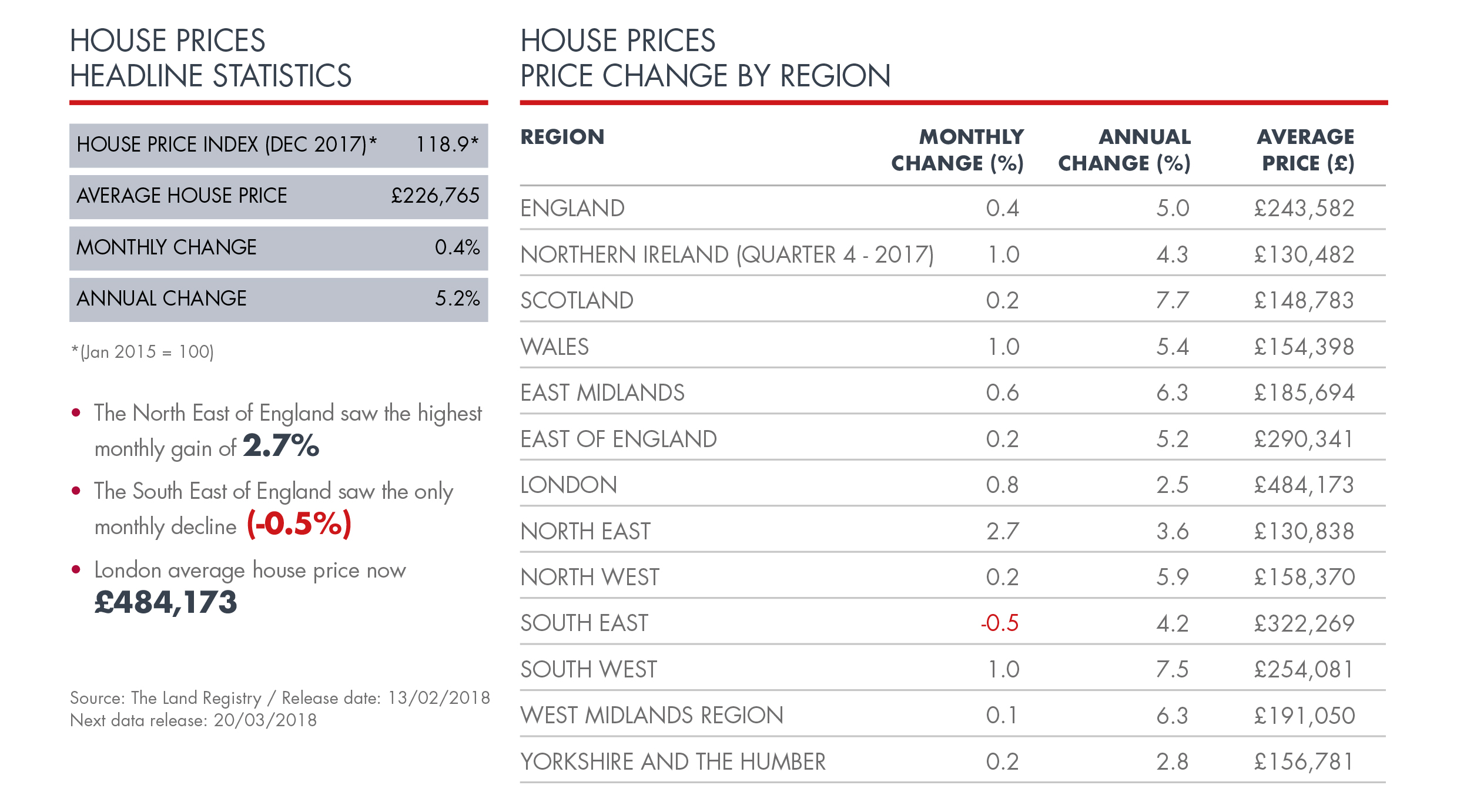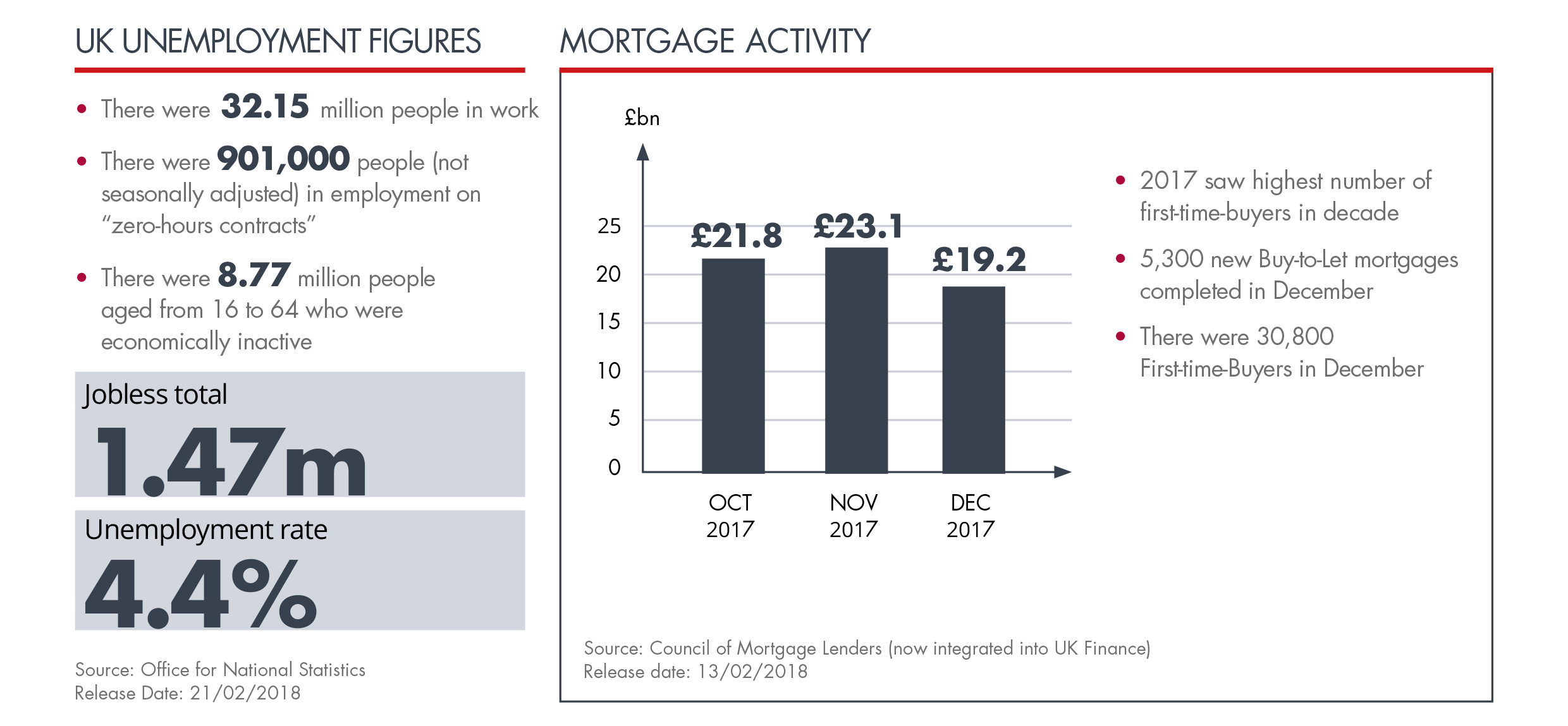Residential Property Review February 2018
First-time buyers reach a ten-year high
One of the UK’s biggest mortgage lenders, Halifax, has reported that the number of first-time buyers in the UK has reached a ten-year high at 359,000. The average deposit for these purchases has climbed by 91% over the last decade.
To put that into perspective, the average house deposit back in 2007 was £17,740, this has rocketed to £31,339 today. This can be largely attributed to the fact the average house price has risen by 21% (or £37,377) over the last ten years to £212,079.
The Halifax Managing Director, Russell Galley was quoted as saying: “This ten-year high in the number of first-time buyers shows continued healthy movement in this key area despite a shortage of homes and the ongoing challenge of saving enough of a deposit.”
Residential development land – values on the rise
In their recent Market in Minutes research paper on UK residential development land, Savills reports that residential land values have moved away from their historically benign state as land values are beginning to increase and competition for sites intensifies. This is particularly noticeable in the North of England and in Scotland. As a result of this, Savills forecast higher than average house price growth in Northern England over the next five years.
The report goes on to say that strategic land is a focus for investors and developers. Several major housebuilders are aquiring more of this strategic land, as it allows them to maintain their margins and retain greater control over their land pipelines.
At the same time medium-sized housebuilders are purchasing larger sites, with the typical build now encompassing an average of 87 plots per development, versus 72 plots seen in 2016.
Government’s new-build housing target doubtful
The Royal Institution of Chartered Surveyors (RICS) recently reported that just 12% of respondents to their survey believe that the government will be able to reach its target of 300,000 new-build homes across the UK over the next few years.
One of the main reasons cited by respondents to the survey for this perceived shortfall is the severe shortage of skilled workers and in particular, trained professionals, such as quantity surveyors.
Difficulty in finding suitable sites with the required planning consent is also seen to be a crucial problem, together with the lack of local authority infrastructure funds being made available for the necessary amenities to be put in place for such developments.


It is important to take professional advice before making any decision relating to your personal finances. Information within this document is based on our current understanding and can be subject to change without notice and the accuracy and completeness of the information cannot be guaranteed. It does not provide individual tailored investment advice and is for guidance only. Some rules may vary in different parts of the UK. We cannot assume legal liability for any errors or omissions it might contain. Levels and bases of, and reliefs from, taxation are those currently applying or proposed and are subject to change; their value depends on the individual circumstances of the investor. No part of this document may be reproduced in any manner without prior permission.
